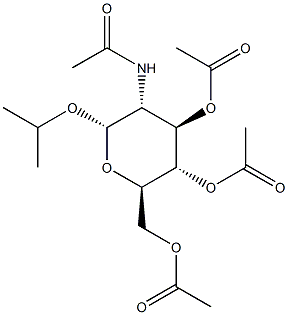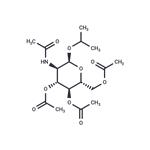c34 is a 2-acetamidopyranoside that inhibits tlr4 signaling in enterocytes and macrophages in vitro when used at 10 μm. it does not affect signaling through either tlr2 or tlr9[1,2].c34, used at 1 mg/kg can reduce systemic inflammation in mouse models of endotoxemia and necrotizing enterocolitis[1].c34 markedly decreases the basal expression of tnfα, as well as lps-induced inos and tnfα expression, in intestinal tissue isolated from patients with necrotizing enterocolitis[1].[1]. neal m d, jia h, eyer b, et al. discovery and validation of a new class of small molecule toll-like receptor 4 (tlr4) inhibitors. plos one, 2013, 8(6): e65779.[2]. wipf p, eyer b r, yamaguchi y, et al. synthesis of anti-inflammatory α-and β-linked acetamidopyranosides as inhibitors of toll-like receptor 4 (tlr4). tetrahedron letters, 2015, 56(23): 3097-3100.
TLR4-IN-C34 is a potent and specific inhibitor of toll-like receptor 4 (TLR4), which inhibits TLR4 signaling in vivo and in vitro. TLR4-IN-C34, also known as C34, is an aminomonosaccharide that inhibits TLR4 signaling by docking with the hydrophobic pocket of the TLR4 co-receptor, myeloid differentiation protein-2 (MD-2). C34 has been shown to diminish the severity of experimental necrotizing enterocolitis (NEC).

